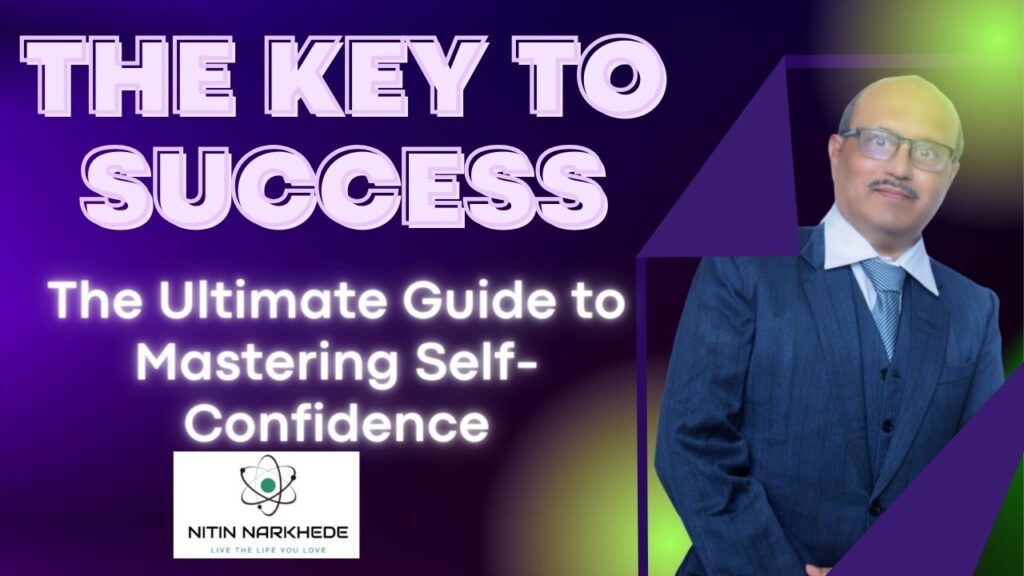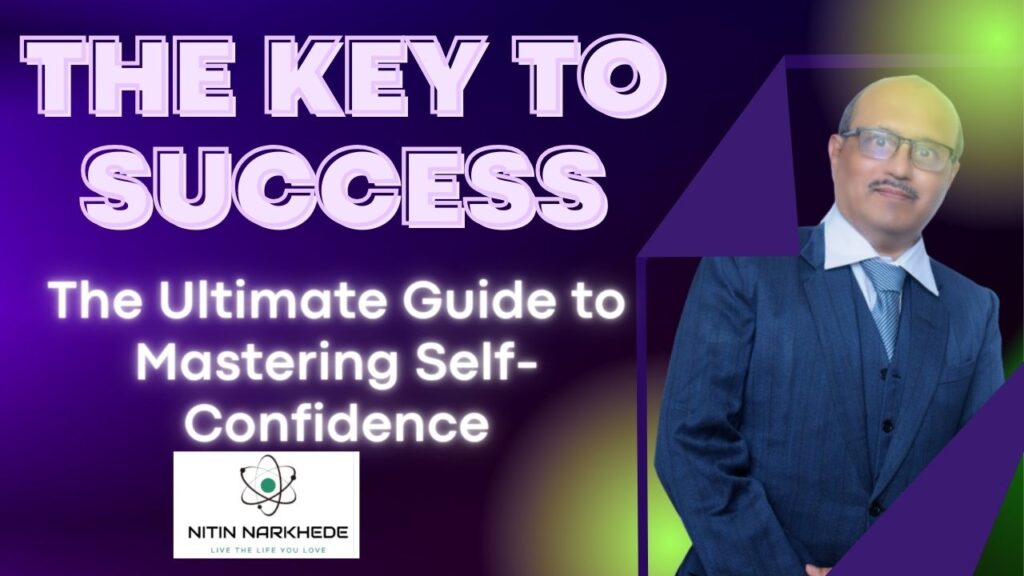
The Key to Success: The Ultimate Guide to Mastering Self-Confidence
“Unlock Your Full Potential: Mastering the Art of Self-Confidence”
Where does self-confidence come from? How do some people exude it effortlessly while others struggle to find even a glimmer of it? The answer, quite simply, is you. Self-confidence begins with your perception of yourself and how you believe others perceive your actions and behavior.
For many of us, the struggle with self-confidence is like a shadow that hovers over our loftiest ambitions. Perhaps you’ve always dreamt of gracing the stage, serenading an audience, or standing in the spotlight as an actor. Maybe your deepest aspiration is to explore the world, to visit far-off countries and vibrant cities, yet self-doubt holds you back. Or perhaps, the battlefield of your self-confidence is closer to home – it’s in the office, the boardroom, or when you’re called upon to speak in public.
Self-confidence challenges touch most of us at some point in our lives, and we often devise ways to navigate around them. We master the art of avoidance, creating excuses to elude intimidating situations. However, avoidance can’t be the answer to every challenge. There come moments in life when we can’t escape, nor do we want to. If a lack of self-confidence is inhibiting you from trying something new or succeeding in your career, it’s time to address it head-on.
The first step in reclaiming your self-confidence is to understand the root of the problem. Low self-esteem, a lack of belief in your abilities, feelings of inadequacy compared to your peers, or perhaps lingering childhood traumas can all contribute to this inner struggle. By scrutinizing the reasons behind your self-confidence issues, you’re already halfway to overcoming them.
The next step involves taking deliberate action to combat your fears and boost your self-confidence. One powerful strategy is to start with small challenges. Your brain has linked certain events or actions to fear, causing you to anticipate negative outcomes. By taking small steps to confront these situations, you’ll often find that the reality isn’t as dire as you imagined. In fact, the feeling of accomplishment can have an instant and uplifting effect on your self-confidence.
Once you’ve completed your initial small challenges, celebrate your achievements. A small reward can make a big difference. You’re now on your way to improving your self-confidence, and it’s time to level up. The process doesn’t have to be a colossal leap; it’s better to progress gradually at first. Incrementally increase the risks you’re willing to take to steadily enhance your self-confidence. “Risk” doesn’t mean jumping off bridges; it’s more about challenging your perception of potential outcomes.
Although self-confidence issues are common, many resources are available to help you address them. However, if your self-confidence problems are severe and significantly impede your life, it’s advisable to seek professional assistance.
Now, you might wonder, how can you increase your self-confidence at work, or how can you build more self-confidence in general? The answers are multifaceted, and they involve a combination of self-care, building positive relationships, adopting a growth mindset, challenging yourself, and practicing self-affirmations.
The truth is, self-confidence is the catalyst for success. When you believe in yourself, you are more willing to acquire the skills and take the calculated risks that can propel you to new heights. And the best part? It often leads to increased income.
So, where does self-confidence come from? The answer is simple: it begins with you. Are you ready to unlock your self-confidence and succeed in anything you set your mind to?
self-confidence is the key to unlocking your potential, but it doesn’t always come naturally. Let’s delve deeper into this concept:
The Roots of Self-Confidence
Your self-confidence, or the lack of it, can often be traced back to your self-awareness. When you’re in tune with who you are and what you’re capable of, self-confidence naturally follows. It’s like the two sides of the same coin.
But what’s the cause of low self-confidence? Often, it’s related to self-esteem, which is your overall sense of self-worth. A negative self-image, self-doubt, and feelings of inadequacy can undermine self-esteem and, by extension, your self-confidence.
Conquering the Fears
You might wonder if there’s a remedy for these deeply ingrained confidence issues. The answer is yes, and it starts with understanding the root causes. By exploring your self-doubts and analyzing the past experiences that have led to them, you can better navigate the path to self-assurance.
Small Steps to Great Confidence
Confronting your fears and taking measured steps to conquer them is a powerful strategy. By challenging yourself in manageable ways, you’ll begin to rewire your brain’s association with certain events and reduce the anticipation of negative outcomes.
Celebrate your accomplishments along this journey, and reward yourself. Acknowledging your progress can be a significant motivator. And remember, building self-confidence is not about giant leaps; it’s about gradual, sustainable progress.
The Role of Risk-Taking
Taking calculated risks is an integral part of developing self-confidence. This isn’t about reckless actions; it’s about facing situations that you previously deemed intimidating and understanding that the actual consequences are often far less daunting than your imagination makes them out to be.
Professional Help When Needed
If your self-confidence issues are severe and are significantly hindering your life, it’s wise to seek professional help. Therapists, counselors, and life coaches can provide valuable guidance and support tailored to your specific situation.
Self-Confidence in Practice
How can you apply these principles in real life? Consider the following:
- Learn New Skills: Expanding your skill set can boost your self-confidence. It’s a tangible way to prove to yourself that you’re capable of growth and adaptation.
- Dress for Success: How you present yourself to the world can greatly impact how you feel about yourself. When you look good, you often feel more confident.
- Leave Your Comfort Zone: Growth happens when you push the boundaries of your comfort zone. Each step you take outside of it contributes to your confidence.
- Set Goals: Establishing goals gives you a sense of direction and achievement when you reach them. It’s a confidence-building practice.
- Focus on Your Strengths: Identifying and nurturing your strengths is a powerful way to bolster your self-confidence. When you excel in something, it naturally boosts your self-esteem.
- Learn from Mistakes: Mistakes are inevitable in life, but they’re also valuable lessons. Embrace them as opportunities for growth, not as reflections of your self-worth.
- Eliminate Negative Language: Pay attention to the way you speak to yourself. Replace self-deprecating talk with positive affirmations.
- Ask Questions: Don’t be afraid to seek clarification or help when you need it. It shows that you’re aware of your own limitations and committed to growth.
Remember, self-confidence isn’t an overnight achievement; it’s a journey. Overcoming the hurdles of self-doubt and building genuine self-confidence takes time, dedication, and a willingness to embrace change.
So, are you ready to unlock your self-confidence and embark on a path to success? Self-confidence isn’t just a personality trait; it’s a skill that can be cultivated, and it’s your ticket to realizing your full potential.
Regards,
Nitin Narkhede Founder of Prosperity Lifestyle Hub, CEO of Syner

